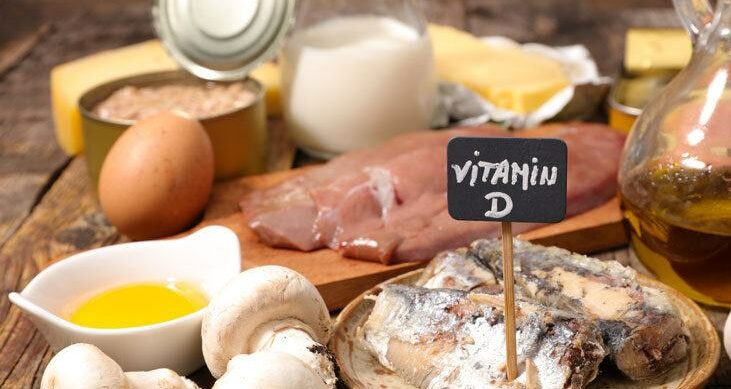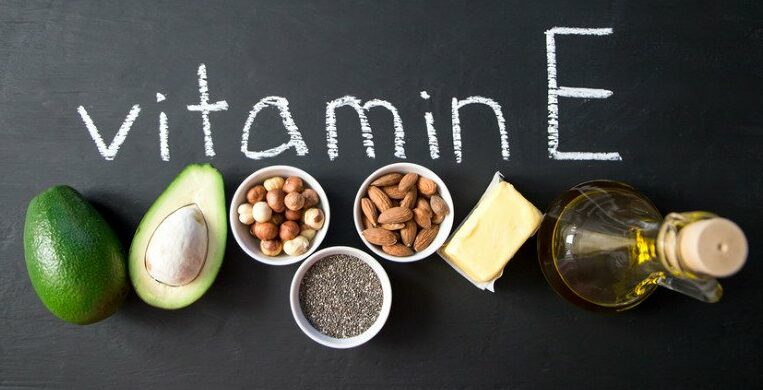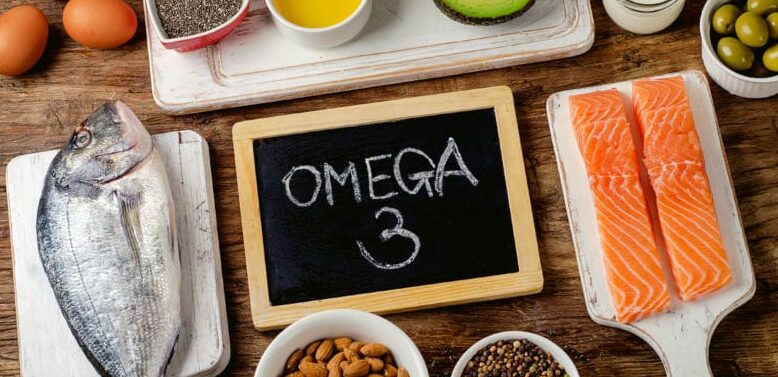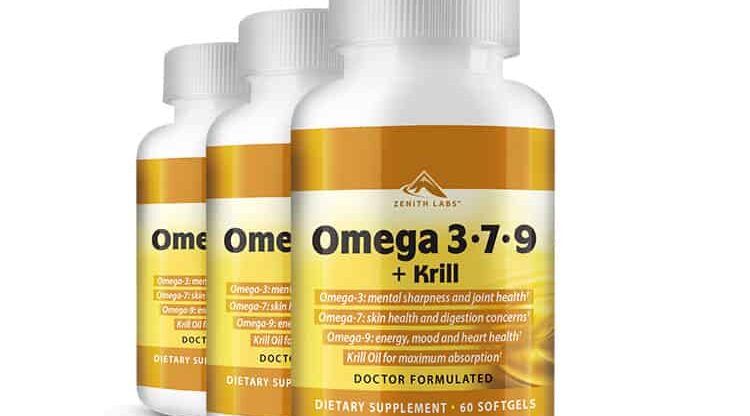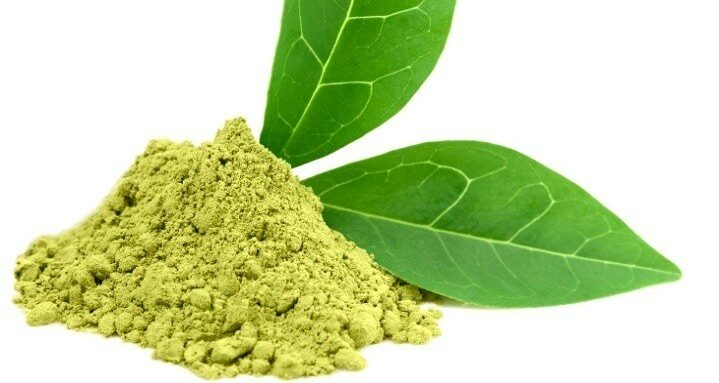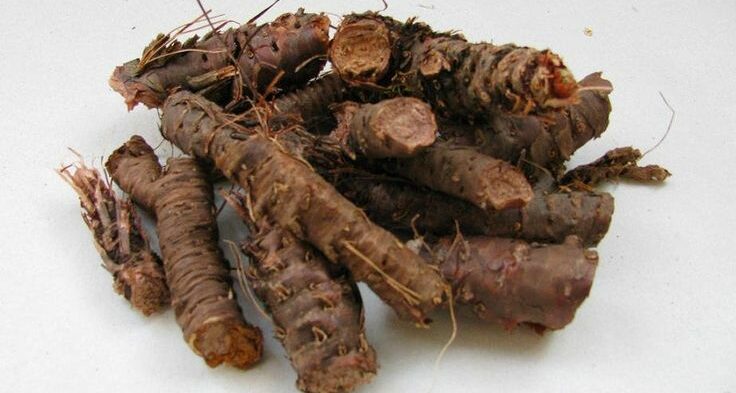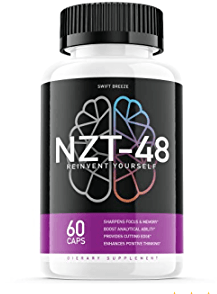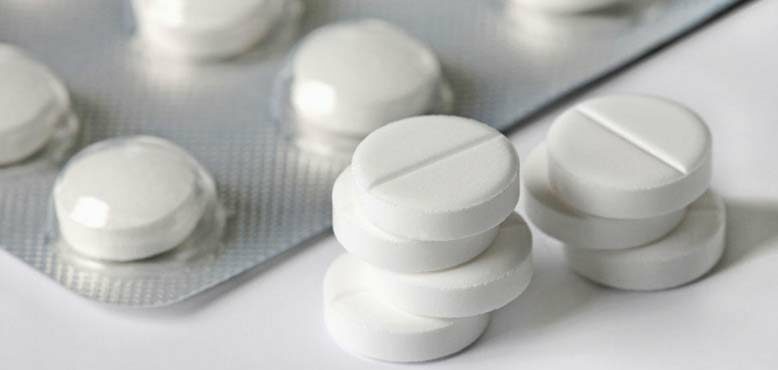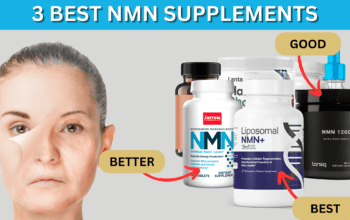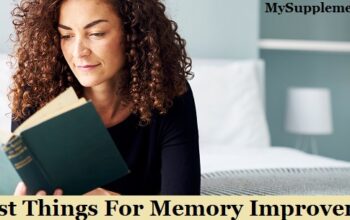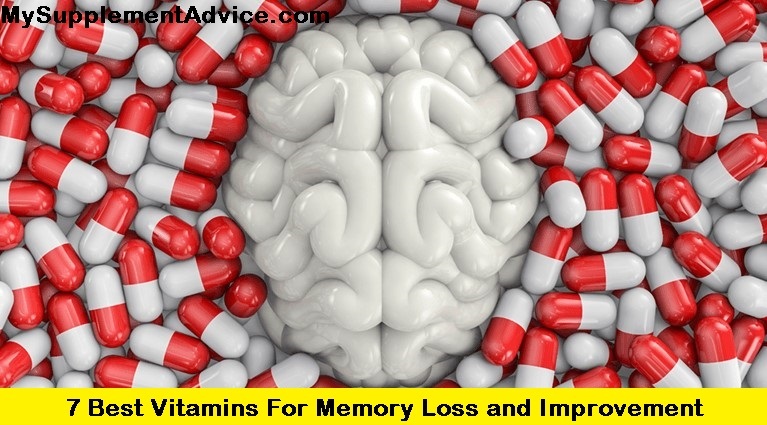
Do you misplace your things often?
Or does your mood changes frequently?
I understand that having memory loss can really be frustrating.
Well, don't worry – as I have the 7 best vitamins for memory loss and improvement.
Note: This recommendation is founded on thorough research and opinion on memory loss.
#1 – Vitamin D
Contrary to mainstream news, vitamin D is not only good for your bones.
But it has many major health benefits too.
And that includes improving your memory.
This is because it is involved in regulating essential genes for your brain function.
Check out the following benefits on how it positively impacts your brain:
- Activates and deactivates enzymes.
- Improves your memory and learning.
- It's actively involved in neurotransmitter synthesis and nerve growth.
- Protects your neurons.
- Reduces inflammation.
In fact, new studies say that when you low vitamin D may result in cognitive decline [1].
This only proves how important it is in ensuring your optimal memory function.
You now know that having enough vitamin D can make a difference.
Here are vitamin D-rich foods for you to consider:
- Egg yolks
- Fortified products
- Red meat
- Liver
- Oily fish (sardines, salmon, mackerel)
Vitamin D isn't only beneficial for your cognition performance.
It also holds a number of benefits for your overall health.
By making sure you get the right amount of this vitamin, you're also strengthening your whole body system.
SUMMARY
Vitamin D has many known health benefits.
It plays a crucial role in the maintenance of your actual brain health.
Plus, it effectively enhances your learning and memory skills.
#2 – Vitamin E
Just like vitamin D, vitamin E is something that you should definitely have.
In fact, it was observed that when high vitamin E is in the body, it results in better cognition.
This is the reason why I included it in this list.
It will definitely help you in improving your memory capability.
Take a look at how it further helps you:
- Prevents brain fog.
- Protects your brain cells from oxidative stress [2].
- Lessens the risk of neurodegeneration.
- Slows down the decline of thinking and memory.
- Helps against mild to moderate Alzheimer's disease.
Vitamin E has more to offer for your mental health.
It is also known to give you relief from stress, anxiety and depression.
This is important, as dealing with memory loss can really be a struggle.
And it's important to stay positive – so that you can focus on your success in overcoming it.
I have made this list of primary sources of the vitamin for you:
- Green Leafy Vegetables (Romaine lettuce, broccoli, spinach, beet greens)
- Seeds (sunflower seeds)
- Nuts (hazelnuts, peanuts, almonds)
- Vegetable Oils (safflower, sunflower, soybeans, corns, wheat germ)
- Fortified Products (margarine, spreads, fruits juices)
Here are some more – it is also an important antioxidant.
That's how it protects your brain cells from oxidative stress damage.
That especially that your brain is susceptible to this problem.
SUMMARY
Vitamin E has a positive impact on your brain health.
It specifically improves both your learning ability and memory.
At the same time, it holds a number of mental benefits as well.
#3 – B Complex
It is clear that a deficiency in vitamins like B complex can result in cognitive impairment.
Thus, it would be greatly affecting your memories.
This is why it's super important for you to make sure that you are getting enough B vitamins.
Deficiency are very common, especially in older adults.
These are the ways how B vitamins can reduce such problems:
- Breaks down homocysteine [3].
- Maintains healthy nerve cells.
- Lessens the risk of dementia.
- Reduces chances of Alzheimer's disease.
- Produces energy that helps to develop new brain cells.
I should highlight here the importance of controlling your homocysteine levels.
It is an amino acid whose very high levels can increase your risk of Alzheimer's disease.
Additionally, it has a direct neurotoxic effect that is associated with brain atrophy.
Now, this is why B vitamins (B12, B6 and folate) are crucial.
Knowing this, you should definitely consume more of the following:
- Dark green vegetables (bok choy, lettuce, spinach, kale)
- Fish (mackerel, tuna, salmon)
- Shellfish (clams, oysters)
- Cheese
- Milk
- Eggs
- Meat (red meat, chicken)
- Liver and kidney
With these B complex-rich food items, you will surely get some good amounts.
Now, you could choose vegetable-based if you're vegetarian.
I would also suggest taking supplements for better results.
SUMMARY
High levels of homocysteine are known to cause mental decline related to Alzheimer's disease.
To avoid this, make sure to get enough of the B complex.
You could get these vitamins from natural foods and supplements too.
#4 – Thiamine
It has been shown in studies that thiamine deficiencies can cause cognitive deficits [4].
This is because the reduction of this vitamin drives AD-like abnormalities.
That's why it's also very important for you to sustain yourself with the right amount of thiamine.
Paying attention to it can help you prevent such cases.
Consider these additional benefits:
- Improvement of your memory.
- Enhancement of your concentration.
- Positive effects on your attitude.
- Maintenance of brain function.
- Development of muscle coordination and confusion.
Thiamine is also known as vitamin B1.
And just like the other B vitamins, it also helps the nervous system function properly.
The vitamin also supports you in withstanding stressful conditions.
This could be helpful, because forgetting some things can indeed cause stress.
Make sure to try at least some of these good sources of thiamine:
- Fish
- Pork
- Green peas
- Yogurt
- Fortified breakfast cereals
- Enriched food products (bread, cereals, noodles)
These food items are often very accessible to you.
They can be found in your nearest local markets or convenience stores.
Now that you know the benefits of thiamine, it's now your turn to make it into action.
SUMMARY
Thiamine works well in maintaining a healthy nervous system and brain function.
It is also effective in stress relief, which is something to consider when dealing with cognitive problems.
#5 – Omega Fatty Acids
Here's one good nutrient for you.
Omega 3 fatty acids are known to be essential – as our bodies cannot produce them.
But you need a healthy supply of them for the optimal function of your body.
They have a lot of general health benefits as well.
Here's how these nutrients will help sharpen your memory:
- Play a crucial role in your brain and nerve cells growth.
- Promote learning and memory function.
- Slow down age-related mental decline.
- Improve mental fatigue.
- Keep you away from developing Alzheimer's disease.
There are 3 main types of Omega fatty acids:
- Alpha-Linolenic Acid (ALA)
- Eicosapentaenoic Acid (EPA)
- Docosahexaenoic Acid (DHA)
They have a good impact in dealing with mild memory loss.
Plus, they seem to counter depression.
After knowing these essential benefits, it is now time for you to consume more of them.
Choose these high-rich food items:
- Plant Oils (canola oil, soybean oil, flaxseed oil)
- Nuts and seeds (chia seeds, flaxseed, walnuts)
- Fish and other seafoods (herring, tuna, salmon, mackerel sardines)
- Fortified products (soy beverages, eggs, yogurt, juices)
You can also choose to opt for taking supplements.
This is just right – as I know got one of the best products for you.
Allow me to introduce to you Omega 3-7-9 + Krill Oil.
These are the benefits it has in store for you:
- Based on krill oil.
- Best known to have a 10 times better overall absorption.
- Contains Omega 7 and Omega 9 that are from Macadamia nut oil.
- Has the best-developed formula (Omega 3, Omega 7, Omega 9).
- Works extremely well in delaying aging.
Omega 3-rich foods and supplements can really mean a lot in memory enhancement [5].
But remember they cannot work instantly.
It may take some time before you get to notice some progress.
Nevertheless, that progress will come and you will begin to appreciate it over time.
SUMMARY
Omega 3 fatty acids effectively work in maintaining brain function.
They also have a significant impact against depression and memory loss.
Omega 3-7-9 + Krill Oil is the best supplement based on these nutrients.
#6 – EGCG
This tip is pretty much a secret that few people know.
Epigallocatechin gallate (EGCG) is the most common catechin found in green tea.
Just like the nutrients from this list, it has potential benefits for your health.
And it has an incredible potential on your brain function.
See the following things it can do for your memory skills:
- Increases brain waves.
- Improves cognitive function.
- Prevents memory impairment [6].
- Adds more dopamine levels.
- Decreases anxiety.
- Reduces pathological markers of Alzheimer's disease.
When it increases your brain waves, it promotes relaxation.
And at the same time, it enhances your attention span, wakefulness and focus.
This development then translates in improving your learning and memory function.
The benefits also include increased calmness and reduced stress.
Let this list be a guide on what's best to consume for this healthy extract:
- Green tea
- Kiwis
- Hazelnuts
- Cranberries
- Strawberries
These are some of the sources high in EGCG.
But I really suggest drinking green tea, as it is the one with the most highest amount.
On the other hand, most of the others only have small amounts.
SUMMARY
EGCG is known to work great on brain health.
It increases brain waves that result in a better memory and learning ability.
Green tea is the primary source of EGCG.
#7 – Rosarins
Rosarin is a cinnamyl alcohol glycoside set apart from Rhodiola rosea.
It's a perennial flowering plant that grows in Asia, Europe and North America.
It has science-proven health benefits that could do incredible things for your cognitive health.
This bioactive compound, rosarins, is known to have anti-inflammatory and neuroprotective effects [7].
Here are more ways on how it benefits you:
- Reduces stress.
- Combats mental and physical fatigue.
- Increases your mental performance.
- Improves your mental fitness.
- Keeps you away from depression.
It truly is one of the best natural remedies for memory.
In fact, it has also been reviewed to improve learning and memory function by a number of animal studies.
Plus, it's also reported to help with focus, mental clarity and boosts your mood.
Clearly, its net benefits are something to consider.
These are ways on how it further helps you:
- Enhances your exercise performance.
- Helps in managing diabetes.
- Has anti-cancer properties.
- Increases your stamina.
- Boosts your energy.
You may be interested in trying this natural remedy.
The best way for you to get it is through supplements.
SUMMARY
Rosarins are bioactive compounds from the Rhodiola rosea plant.
There are studies that have been shown to improve memory and learning.
You can take supplements to get the needed right amounts of this herbal extract.
Best Way To Get These Nutrients
I understand that sometimes, it is difficult to get all these nutrients from natural foods.
That's why I highly suggest you to try supplements.
Dietary intake should be prioritized, but taking supplements could actually lead to better results.
Let me present to you the #1 cognitive supplement, NZT-48.
These are the benefits it can bring:
- Mood improvement.
- Enhancement of your focus and attention.
- Has a powerful effect on memory.
- Development of your learning skills.
- Prevention of anxiety and depression.
If you want a fast memory boost, then this is the product for you!
Its effect tends to appear very fast.
The reason why it's so helpful is that it has an original based mix of active ingredients.
It has the right ingredients in the right formula for you:
- Alpha GPC
- EGCG
- 5-HTP
- Theobromine
- Caffeine HCL
- Benfotiamine
- Rosarins
- Vinpocetine
- Other key ingredients.
Plus, it definitely has a unique mix of ingredients.
Aside from that, it has no serious side effects.
This product is also convenient to use – as it only requires one pill per day.
Oh, and did I mention that it comes with 90-days money-back guarantee?
SUMMARY
You need the right ingredients to prevent and improve memory loss.
It is advisable to take supplements, because they are the easiest way of getting all the critical ingredients.
NZT-48 is your top choice – as it has the best active compounds for your memory function.
My Final Thoughts
So what are the best vitamins for memory loss and improvement?
Here are my top 7 picks:
- Vitamin D
- Vitamin E
- B complex vitamins
- Thiamine
- Omega 3 fatty acids
- EGCG
- Rosarins
Remember that I also showed you how you can get all the key ingredients in one go – through NZT-48.
Still, this supplement won't work overnight.
But it's definitely worth the try – as it will be a big help for you on your road to success.
These tips will surely push you on the right track.
References
1 – https://www.hindawi.com/journals/ijad
2 – https://www.ncbi.nlm.nih.gov/pmc/articles
3 – https://pdf.sciencedirectassets.com/
4 – https://www.ncbi.nlm.nih.gov/pmc
5 – https://onlinelibrary.wiley.com/doi/abs

